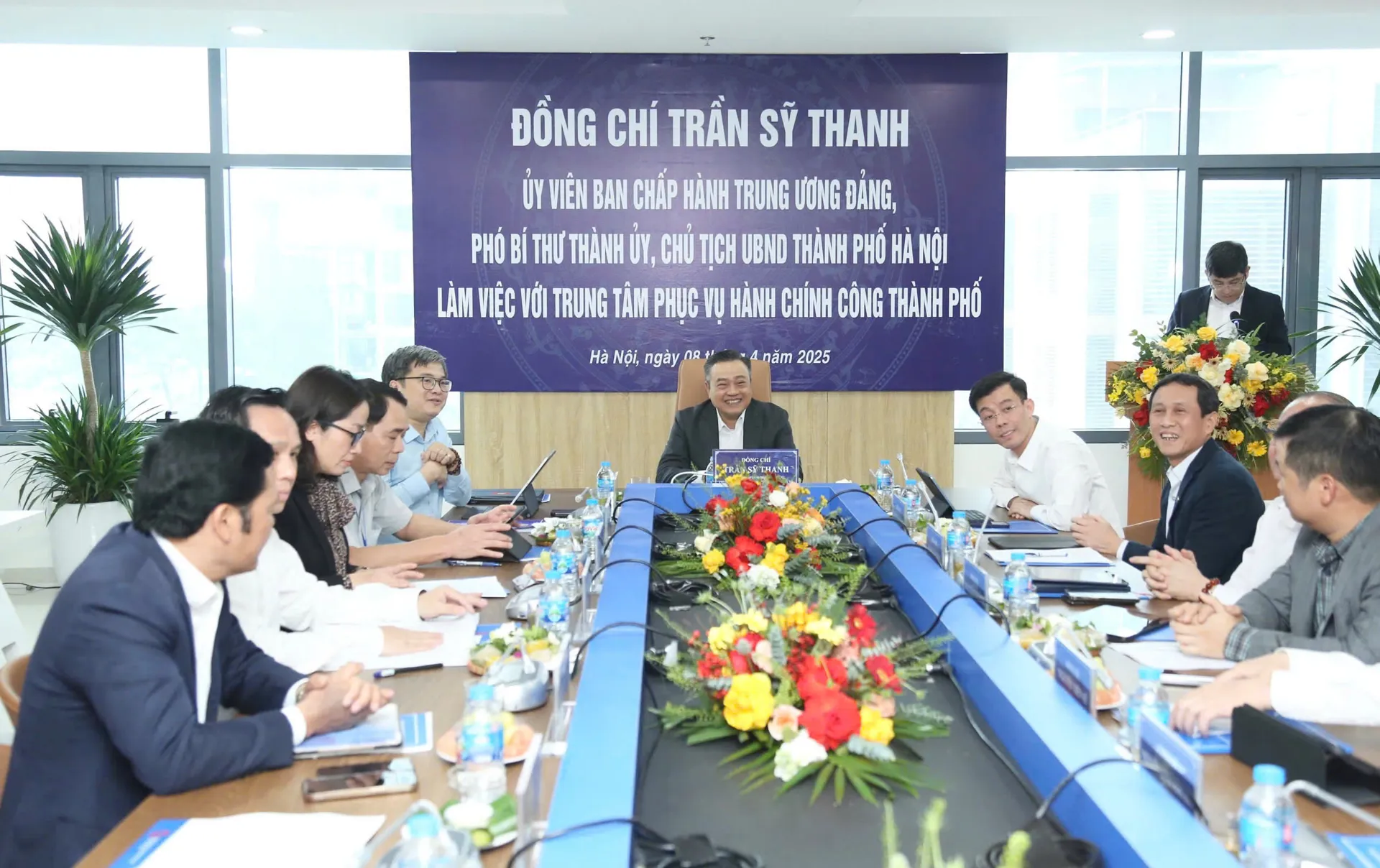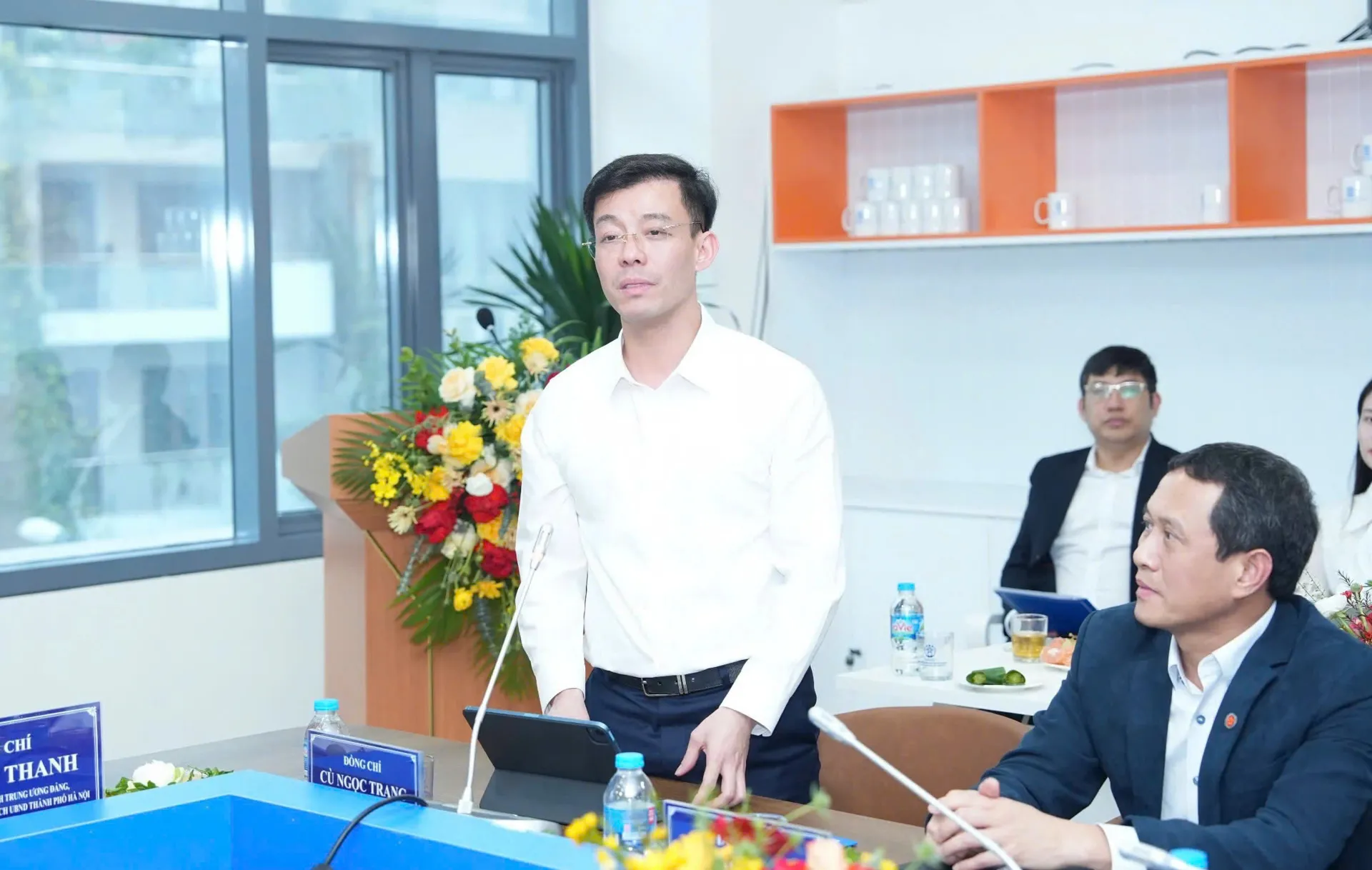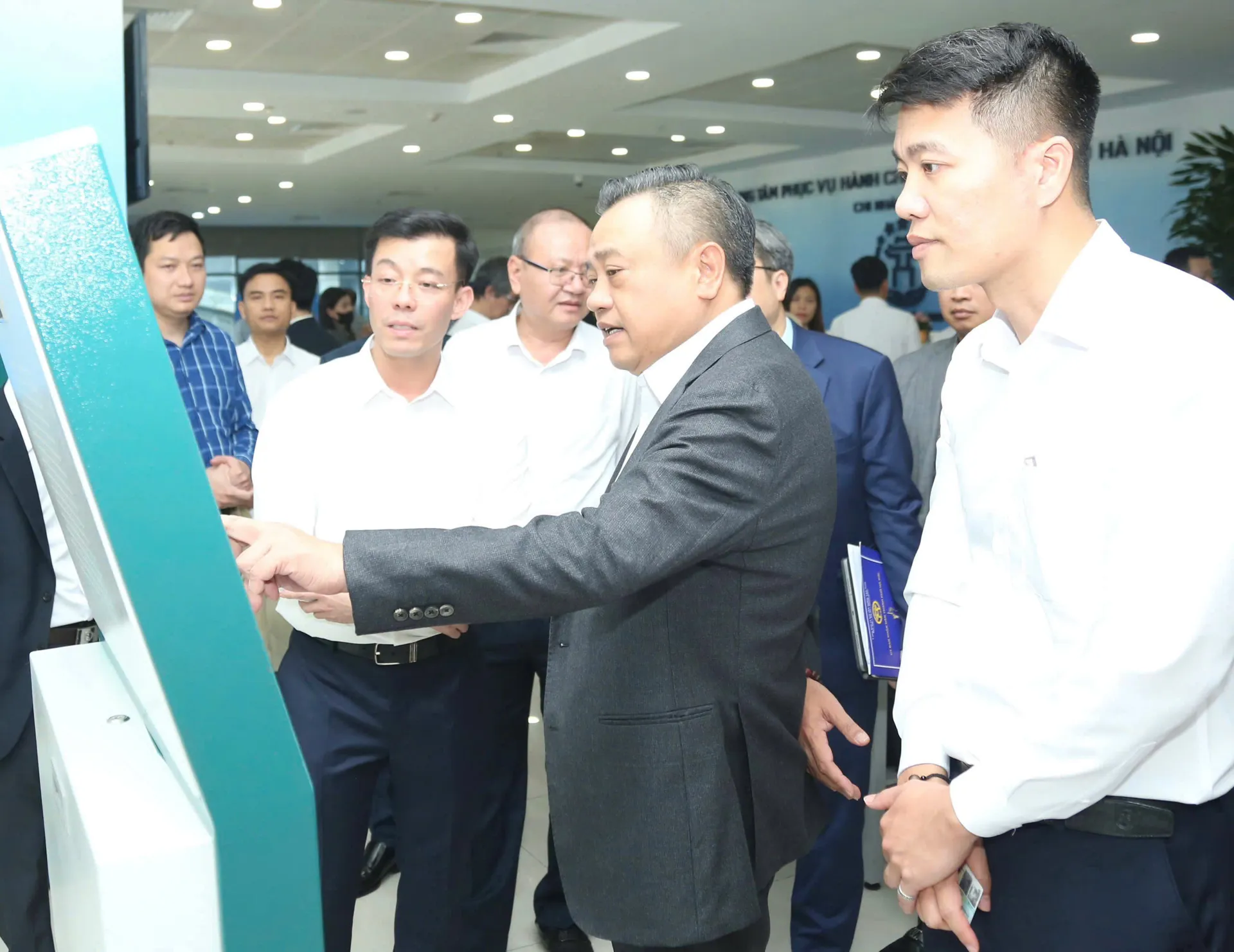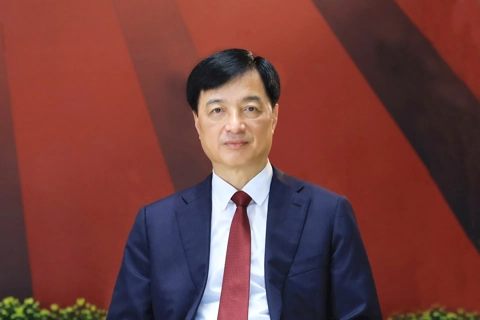Hanoi advances administrative reform with centralized service model
THE HANOI TIMES — Hanoi’s new public service model that works towards a modern, professional, people-focused administrative system is in line with national directions and global trends.
"If Hanoi's pilot is successful, it can be replicated nationwide," Tran Sy Thanh, Chairman of the Hanoi People's Committee, said at a working session on April 8 with leaders of the city's Public Administrative Service Center, the city's administrative reform pilot facility.
He explained that the center does not replace departments, agencies, or local authorities in handling administrative procedures. Its role is to monitor, advise on reforms and apply digital technology, big data, and digital solutions in administration.

Chairman of the Hanoi People’s Committee Tran Sy Thanh works with leaders of the Hanoi Public Administrative Service Center on April 8. Photos: Pham Hung/ The Hanoi Times.
Established by the city government on October 15, 2024, this is the first pilot model at the subnational level to be implemented under the prime minister's directive.

Director of the Hanoi Public Administrative Service Center, Cu Ngoc Trang, delivers a speech at the working session.
After six months of operation, the center has created a shared data platform. It has unified procedures for receiving and processing applications. Several pilot reforms have been launched, resulting in shorter processing times, more transparency, and better quality of service.
However, the rollout is still facing difficulties, especially in terms of staffing. The center's director, Cu Ngoc Trang, noted that most of the staff at the branch offices are seconded from various ministries and local authorities. In some cases, delays in deploying staff have led to shortages. Meanwhile, newly recruited staff need additional training before they can effectively perform specialized tasks.
In addition to these challenges, Ngo Anh Tuan, Director of the Hanoi Department of Justice, pointed out problems related to the remuneration policy. According to the 2024 Capital Law, citywide officials and civil servants will benefit from this policy from January 2025, but the center's staff in particular have not been granted it.
In his concluding remarks, Thanh said that the center must continue refining decentralization, delegation, and the restructuring of administrative procedures.

Chairman of the Hanoi People’s Committee Tran Sy Thanh works with the Hanoi Public Administrative Service Center.
"All processes should be simple, efficient, and fully integrated into the digital system," he said. He also noted that every process must be based on standardized data that is accurate, complete, clean, and reusable.
He instructed the Center to propose technical solutions to enable smooth data sharing and synchronization across the city's management system.
Thanh also emphasized the need to ensure uniform service quality in all branches. He called for the creation of a professional, disciplined, and cohesive work environment that puts people at the center of service delivery.
By June 2025, the center is expected to complete a full assessment of its position within the city's administrative system. This evaluation will form the basis of the city's report to the central government and a proposal to expand the model nationwide.












